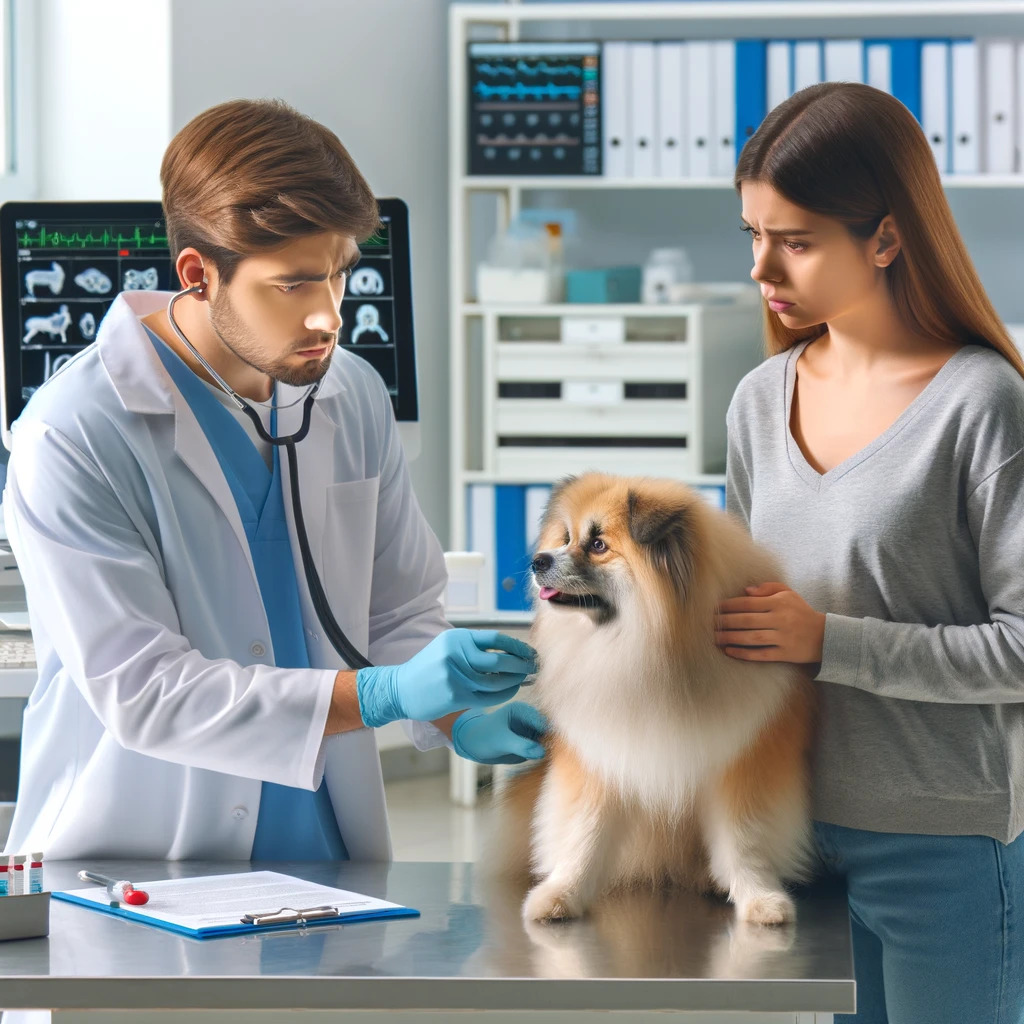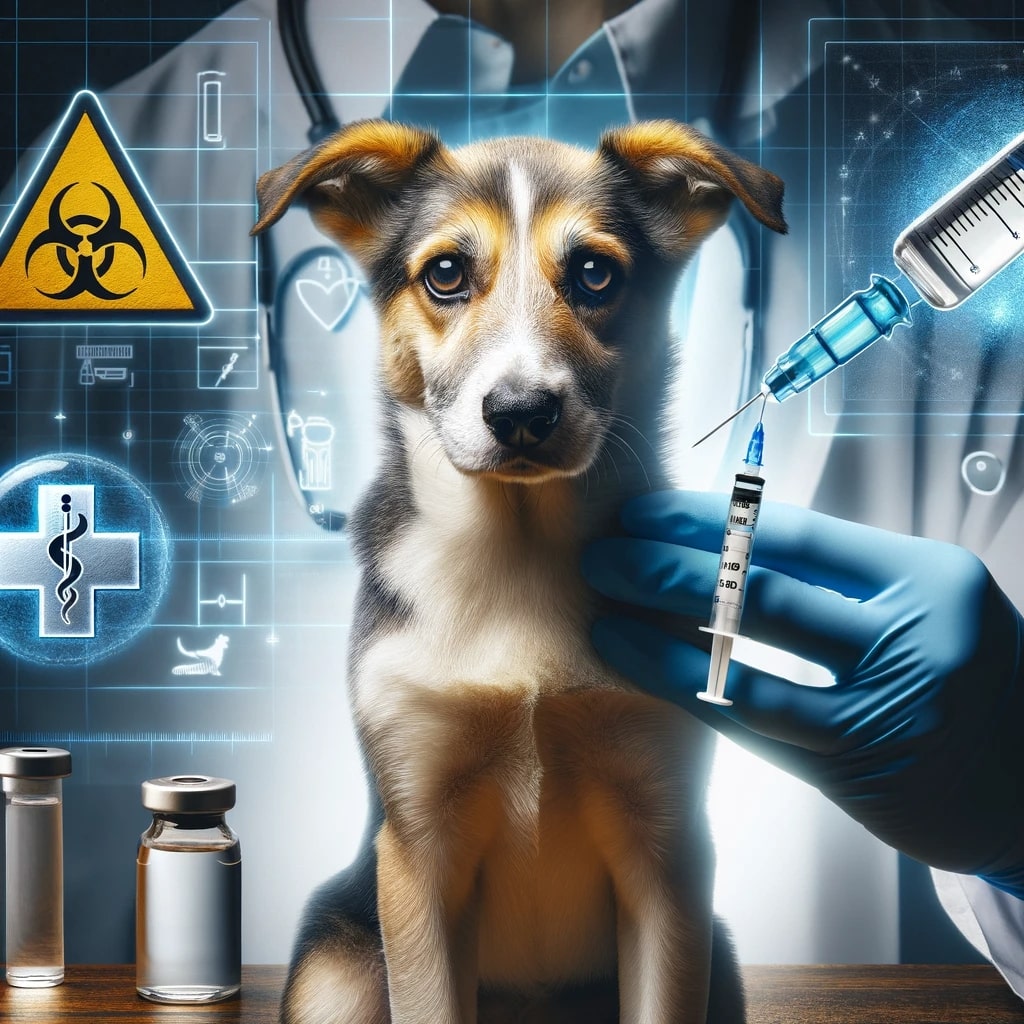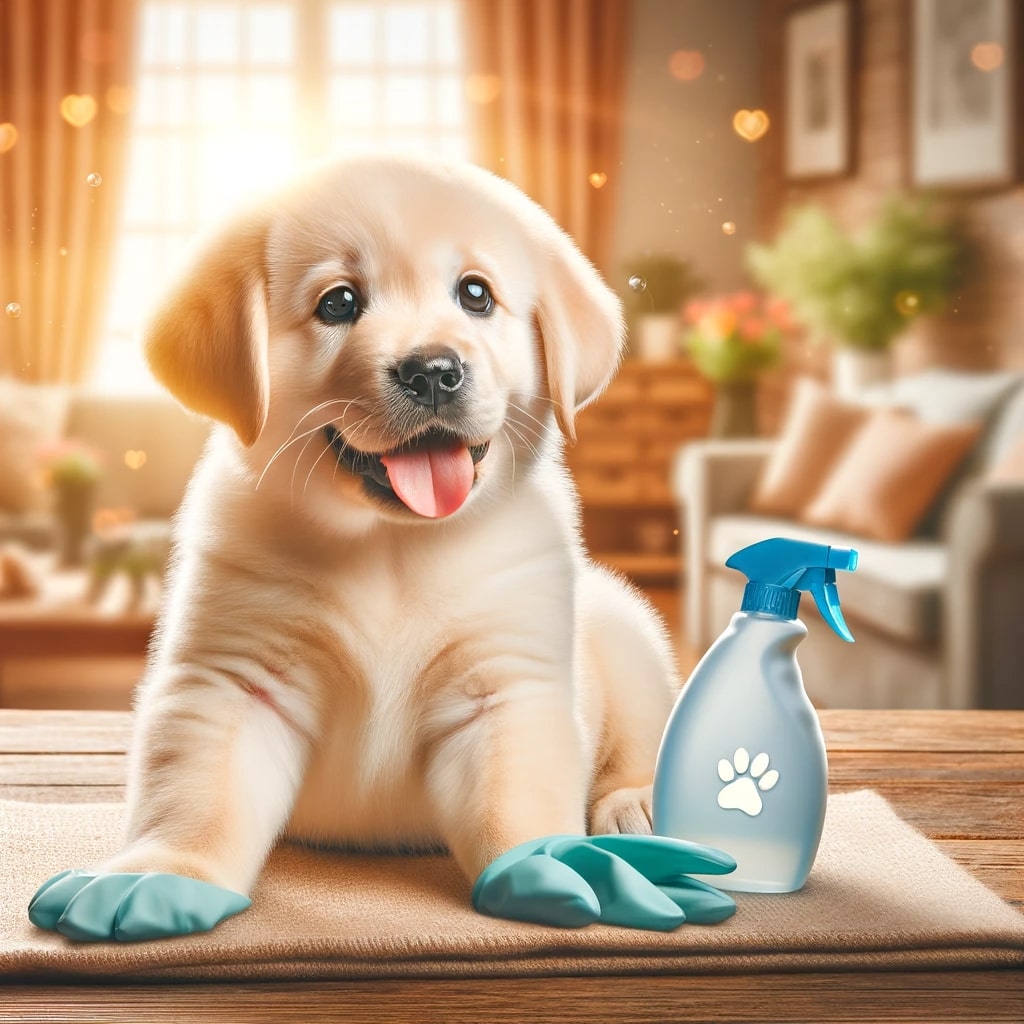Mucormycosis is a rare but serious fungal infection that can affect dogs, leading to severe health issues. This guide aims to provide pet owners with detailed information about mucormycosis, its symptoms, treatment options, and preventative measures.
What is Mucormycosis and How Does it Affect Dogs?
Mucormycosis, also known as zygomycosis, is a severe fungal infection caused by fungi in the order Mucorales. This rare disease primarily affects dogs with weakened immune systems and can result in a variety of health problems, ranging from respiratory issues to skin lesions.
Understanding the Fungi
- Origin: Mucormycosis is caused by saprophytic fungi, which are commonly found in soil, decaying organic matter, and even in the air.
- Infection: Dogs can inhale these fungal spores or they can enter through an open wound.
Symptoms and Signs
- Respiratory Issues: Coughing, nasal discharge, and difficulty breathing.
- Cutaneous Infections: Skin ulcers, swelling, and redness, often at the site of a wound.
- Gastrointestinal Symptoms: Vomiting and diarrhea in some cases.
Severity and Complications
- Rapid Progression: Mucormycosis can progress quickly and aggressively if not treated promptly.
- Potential Complications: In severe cases, it can spread to the brain, lungs, and other vital organs.
Diagnosis
- Veterinary Examination: A thorough examination by a veterinarian is crucial.
- Diagnostic Tests: May include blood tests, tissue biopsies, and imaging studies like X-rays or CT scans.
Treatment Options
- Antifungal Medication: The primary treatment is antifungal drugs, often administered intravenously.
- Surgery: In cases of localized infection, surgical removal of the infected tissue may be necessary.
Prognosis
- Varies by Case: The prognosis depends on the severity of the infection and the overall health of the dog.
- Early Detection: Early detection and treatment are key to a better outcome.
What Causes Mucormycosis in Dogs?
Mucormycosis in dogs is caused by exposure to fungi in the Mucorales order. Understanding the causes and risk factors can help in prevention and early detection.
Common Sources of the Fungi
- Environmental Exposure: Common in soil, compost piles, and decaying vegetation.
- Airborne Spores: Dogs can inhale spores from the environment.
Risk Factors
- Weakened Immune System: Dogs with compromised immunity are at higher risk.
- Pre-existing Conditions: Dogs with diabetes, cancer, or on long-term steroids are more susceptible.
- Age and Breed Factors: Some age groups and breeds may be more prone to infection.
Mechanism of Infection
- Inhalation: The most common route, leading to respiratory mucormycosis.
- Direct Contact: Through skin wounds, leading to cutaneous mucormycosis.
Preventative Measures
- Hygiene and Care: Keeping dogs away from high-risk environments.
- Regular Health Checks: Especially for dogs with known risk factors.
Recognizing Early Signs
- Vigilance: Observing any unusual symptoms in dogs, particularly those at risk.
- Prompt Veterinary Care: Immediate consultation with a veterinarian if mucormycosis is suspected.
How is Mucormycosis Diagnosed in Dogs?
Diagnosing mucormycosis in dogs involves a combination of clinical evaluation, laboratory tests, and imaging studies. Early and accurate diagnosis is vital for effective treatment.
Clinical Evaluation
- Symptom Assessment: Veterinarians will look for signs typical of mucormycosis.
- Medical History: Information about the dog’s overall health and recent exposures.
Laboratory Tests
- Blood Tests: To check for signs of infection and organ function.
- Tissue Biopsy: Examining a sample of affected tissue under a microscope.
Imaging Studies
- X-rays: To view the lungs and other internal organs.
- CT Scans: For a more detailed view, especially in cases of suspected nasal or sinus involvement.
Differential Diagnosis
- Ruling Out Other Conditions: Differentiating mucormycosis from other infections or diseases with similar symptoms.
Role of Veterinary Specialists
- Consultation with Specialists: In complex cases, specialists like veterinary pathologists or internists may be involved.
Importance of Timely Diagnosis
- Avoiding Complications: Early detection can prevent the spread of the infection.
- Tailoring Treatment: A precise diagnosis helps in formulating an effective treatment plan.
What are the Treatment Options for Mucormycosis in Dogs?
Treating mucorm osis in dogs requires a multifaceted approach that often includes antifungal medications, supportive care, and sometimes surgery. The choice of treatment depends on the severity and location of the infection.
Antifungal Medications
- Primary Treatment: Drugs like amphotericin B are commonly used.
- Administration: Often given intravenously, especially in severe cases.
Surgical Intervention
- Removal of Infected Tissue: In cases of localized infection, surgery may be necessary to remove necrotic tissue.
- Post-Surgical Care: Follow-up care is crucial for recovery.
Supportive Care
- Nutrition and Hydration: Essential for strengthening the immune system.
- Pain Management: To ensure the dog’s comfort during treatment.
Monitoring and Follow-up
- Regular Vet Visits: To monitor the dog’s response to treatment.
- Adjusting Treatment: Based on the dog’s progress and any side effects.
Potential Complications
- Side Effects of Medication: Monitoring for any adverse reactions to antifungal drugs.
- Recurrence: Watching for signs of the infection returning.
Prognosis and Recovery
- Varies Widely: Depends on the severity of the infection and the dog’s overall health.
- Long-term Management: Some dogs may require ongoing treatment and monitoring.
Can Mucormycosis in Dogs be Prevented?
While mucormycosis is a rare condition, certain measures can be taken to reduce the risk of infection in dogs, especially those that are more susceptible.
Environmental Management
- Avoid High-Risk Areas: Keeping dogs away from areas with decaying organic matter.
- Cleanliness: Maintaining a clean living environment.
Strengthening Immunity
- Balanced Diet: Providing a diet rich in nutrients.
- Regular Exercise: To maintain overall health and immunity.
Regular Veterinary Check-ups
- Early Detection: Regular check-ups help in catching any health issues early.
- Vaccinations and Health Screening: Keeping up with vaccinations and preventive health screenings.
Special Care for At-Risk Dogs
- Extra Precautions: For dogs with weakened immune systems or chronic health conditions.
- Immediate Attention to Wounds: Prompt care for any injuries to prevent infections.
Educating Pet Owners
- Awareness: Understanding the signs and risks associated with mucormycosis.
- Prompt Veterinary Consultation: Seeking professional advice at the first sign of illness.
What is the Prognosis for Dogs with Mucormycosis?
The prognosis for dogs diagnosed with mucormycosis depends on various factors, including the severity of the infection, the dog’s overall health, and how quickly treatment is started.
Factors Influencing Prognosis
- Early Detection and Treatment: The key to a better outcome.
- Location and Severity of Infection: Infections in vital organs like the lungs have a more guarded prognosis.
Treatment Response
- Effectiveness of Antifungals: How well the dog responds to antifungal therapy.
- Recovery Post-Surgery: In cases where surgical intervention is required.
Long-Term Management
- Chronic Care: Some dogs may need long-term treatment and monitoring.
- Quality of Life Considerations: Balancing treatment with maintaining a good quality of life.
Possible Complications
- Recurrence of Infection: Possibility of the infection coming back.
- Secondary Infections: Risk of additional infections during recovery.
Owner’s Role in Recovery
- Home Care: Providing a supportive and caring environment at home.
- Regular Veterinary Visits: Crucial for monitoring the dog’s recovery.
How Long Does It Take for a Dog to Recover from Mucormycosis?
Recovery time from mucormycosis in dogs can vary widely based on the severity of the infection, the overall health of the dog, and how promptly the treatment was initiated.
Typical Recovery Timelines
- Mild Cases: Recovery can be quicker, often within weeks.
- Severe Infections: May take several months, requiring prolonged treatment.
Treatment Duration
- Antifungal Therapy: Often continued for several weeks to months.
- Post-Surgical Recovery: Depends on the extent of surgical intervention.
Monitoring During Recovery
- Regular Vet Visits: Essential for tracking the dog’s progress.
- Lab Tests and Imaging: To assess the response to treatment.
Rehabilitation
- Physical Therapy: In some cases, to assist with mobility and strength.
- Dietary Management: Tailored diets to support recovery.
Factors Affecting Recovery
- Age and Overall Health: Younger and healthier dogs may recover faster.
- Complications: Presence of complications can prolong recovery.
Owner’s Support
- Home Care: Providing a stress-free environment aids in recovery.
- Medication Adherence: Ensuring all medications are administered as prescribed.
Signs of Improvement
- Reduction in Symptoms: Decreased severity of clinical signs.
- Increased Activity Levels: Return to normal behavior and energy levels.
Are Certain Dog Breeds More Prone to Mucormycosis?
While mucormycosis is a rare fungal infection that can affect any dog, certain breeds may have predispositions to conditions that could increase their risk of developing this disease.
Breed-Specific Risk Factors
- Immune System Function: Breeds with known immune system issues might be more susceptible.
- Pre-existing Health Conditions: Breeds prone to diabetes or other chronic illnesses.
Commonly Affected Breeds
- No Specific Breed Predisposition: There is no strong evidence suggesting that specific breeds are more prone to mucormycosis.
- Individual Health Variances: More dependent on the individual dog’s health and immune status.
Importance of Breed-Specific Care
- Regular Health Checks: Especially important for breeds with known health issues.
- Tailored Nutrition and Exercise: To maintain optimal health and immunity.
Can Mucormycosis in Dogs Lead to Other Health Issues?
Mucormycosis, if not treated promptly and effectively, can lead to a range of secondary health issues in dogs. These complications can impact the overall prognosis and recovery.
Possible Secondary Health Issues
- Spread to Vital Organs: Such as the brain, lungs, or gastrointestinal tract.
- Secondary Bacterial Infections: Due to weakened immunity or open wounds.
Managing Complications
- Immediate Veterinary Intervention: Crucial in managing secondary issues.
- Comprehensive Treatment Plans: Including antibiotics for secondary infections.
Impact on Long-Term Health
- Chronic Health Problems: Some dogs may experience long-term effects.
- Regular Monitoring: Essential to manage any ongoing health concerns.
Preventing Secondary Issues
- Early Detection and Treatment: The best way to prevent complications.
- Supportive Care: Including nutrition, hydration, and comfort measures.
What Are the Latest Research and Advancements in Treating Mucormycosis in Dogs?
Advancements in veterinary medicine are continuously improving the understanding and treatment of mucormycosis in dogs. Research is focusing on more effective treatments and better management strategies.
Recent Developments
- New Antifungal Drugs: Exploring more effective and less toxic options.
- Improved Diagnostic Techniques: For earlier and more accurate detection.
Ongoing Research
- Understanding Fungal Behavior: To develop targeted treatments.
- Immune Response Studies: Investigating how dogs’ immune systems respond to the infection.
Future Prospects
- Vaccine Research: Potential development of vaccines to prevent mucormycosis.
- Personalized Medicine: Tailoring treatments based on individual dog’s needs.
Importance of Veterinary Research
- Enhanced Treatment Options: Leading to better outcomes for affected dogs.
- Increased Awareness: Contributing to better prevention and early detection strategies.
How Can Pet Owners Identify Early Signs of Mucormycosis in Their Dogs?
Early detection of mucormycosis is crucial for effective treatment and recovery. Pet owners play a key role in identifying early signs and seeking prompt veterinary care.
Key Early Symptoms
- Respiratory Distress: Including coughing and difficulty breathing.
- Nasal Discharge: Especially if it is bloody or purulent.
- Skin Lesions: Swelling, redness, or ulcers, particularly around wounds.
Behavioral Changes
- Lethargy: Unusual tiredness or lack of energy.
- Loss of Appetite: Decreased interest in food.
Importance of Regular Observation
- Monitoring Health: Regularly checking for any unusual symptoms.
- Knowing Your Dog: Being aware of what is normal for your pet.
When to Seek Veterinary Care
- Prompt Consultation: If any of these signs are observed, it’s vital to consult a veterinarian immediately.
- Better Safe Than Sorry: It’s better to have a false alarm than to wait until the disease has progressed.
Pet Owner Education
- Understanding Risk Factors: Being aware of the environments and conditions that increase risk.
- Regular Veterinary Checkups: Essential for early detection and prevention.
How Does the Environment Affect the Risk of Mucormycosis in Dogs?
The environment plays a significant role in the risk of mucormycosis in dogs, as the fungi responsible for the infection are commonly found in certain settings.
High-Risk Environments
- Soil and Organic Matter: Particularly areas with decomposing plant and animal matter.
- Poorly Ventilated Spaces: Where fungal spores can accumulate.
Environmental Management
- Avoidance of Risk Areas: Keeping dogs away from places where the fungi are likely to thrive.
- Clean and Dry Surroundings: Maintaining a clean, dry environment for your pet.
Seasonal Factors
- Humidity and Temperature: Fungal growth is more prevalent in warm, humid conditions.
- Seasonal Precautions: Being extra vigilant during certain times of the year.
Outdoor and Indoor Considerations
- Outdoor Risks: Awareness of outdoor factors like gardening areas, compost, etc.
- Indoor Air Quality: Ensuring good ventilation and air quality inside the home.
What Role Does a Dog’s Diet Play in Preventing Mucormycosis?
A balanced and nutritious diet is essential for maintaining a dog’s overall health, which in turn can help in reducing the risk of mucormycosis.
Nutritional Requirements
- Immune System Support: Diets rich in vitamins and minerals that support immune health.
- Quality Ingredients: High-quality, well-balanced commercial or homemade diets.
Specific Dietary Considerations
- Probiotics and Prebiotics: To support gut health and immunity.
- Avoiding Certain Foods: Foods that could weaken the immune system or cause allergies.
The Importance of Hydration
- Adequate Water Intake: Essential for overall health and immune function.
Tailoring Diet to Individual Dogs
- Specific Needs: Considering the dog’s age, breed, and health status.
- Consultation with a Veterinarian: For personalized dietary recommendations.
Conclusion
Mucormycosis in dogs is a serious fungal infection that requires immediate veterinary attention. Understanding the disease, its symptoms, and treatment options is vital for pet owners. Early detection, prompt treatment, and supportive care are key to managing this condition effectively. Regular veterinary check-ups, environmental management, a balanced diet, and being aware of the early signs can significantly help in prevention and early intervention. Advancements in veterinary medicine continue to improve the prognosis for dogs with mucormycosis, highlighting the importance of ongoing research and education in the field of animal health.
Summary Table
| Section | Key Points |
| What is Mucormycosis? | A severe fungal infection caused by Mucorales fungi, affecting dogs with weakened immune systems. |
| Causes | Exposure to fungi in soil, decaying matter; higher risk in immunocompromised dogs. |
| Diagnosis | Clinical evaluation, laboratory tests, and imaging studies. |
| Treatment Options | Antifungal medications, surgery for localized infections, and supportive care. |
| Prevention | Avoid high-risk areas, strengthen immunity, regular veterinary check-ups. |
| Prognosis | Depends on the severity, early detection and treatment. |
| Recovery Time | Varies; from weeks to months depending on severity and treatment. |
| Breed Predisposition | No specific breed predisposition; depends more on individual health and immune status. |
| Secondary Health Issues | Possible complications include spread to vital organs and secondary bacterial infections. |
| Research and Advancements | New antifungal drugs, improved diagnostic techniques, ongoing studies in immune response and treatment. |
| Early Signs Identification | Respiratory distress, nasal discharge, skin lesions, behavioral changes like lethargy and appetite loss. |
| Environmental Risk Factors | Presence of fungi in soil, organic matter; higher in warm, humid conditions. |
| Dietary Role in Prevention | Balanced diet supporting immune health, adequate hydration. |
Frequently Asked Questions
Early signs include respiratory distress, nasal discharge, skin lesions, lethargy, and loss of appetite.
Yes, with prompt and appropriate treatment, including antifungal medication and sometimes surgery, mucormycosis can be cured.
Mucormycosis is not typically contagious between dogs or from dogs to humans. It’s an environmental infection.
Preventive measures include avoiding high-risk areas, maintaining good hygiene, and ensuring your dog has a strong immune system.
The survival rate varies based on the severity of the infection and how quickly treatment is started.
Yes, warmer and more humid seasons can increase the risk due to higher fungal growth.
Consult with a veterinarian, but generally, a diet supporting immune health is beneficial.



